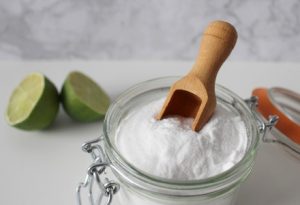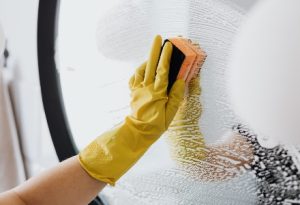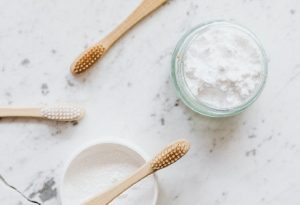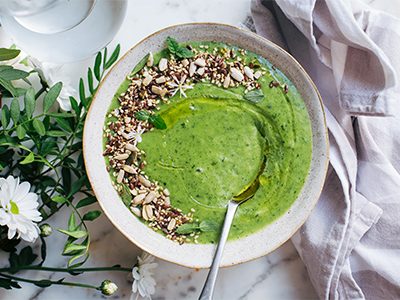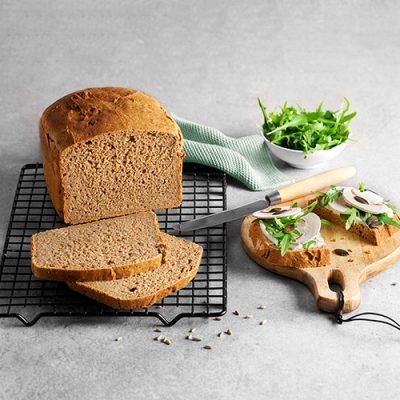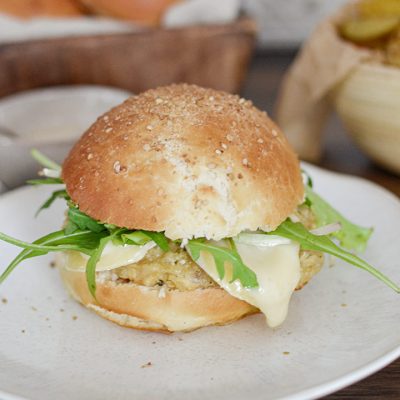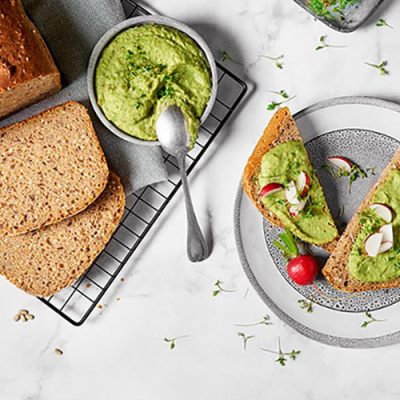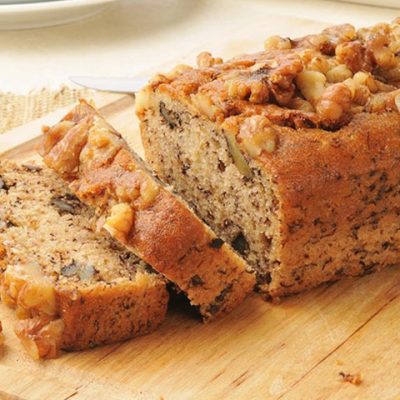Stubborn stains on the tablecloth, limescale in the sink and an unbaked birthday cake on the to-do list: What sounds like rampant chaos can now be tackled using only a simple household remedy. The keyword is sodium hydrogen carbonate, or baking soda for short. Even granny knew about the many uses of this natural salt in the home, kitchen and personal care. If you don’t have a pack of this affordable all-rounder at home yet, now is the time to get one. There is huge potential and versatility in baking soda, which we would like to introduce to you in more detail.
Baking soda, baking powder or soda?
Baking soda, also known as baking powder or sodium bicarbonate, is a sodium salt of carbonic acid that occurs in small amounts in nature but is mainly obtained from table salt using a special process. When exposed to moisture, high levels of heat and in contact with acidic substances, it releases carbonic acid. Due to its rising, air-bubble-forming effect, it has long been used as a raising agent and as such is also an integral component of baking powder.
Baking soda and baking powder are not the same thing, as baking powder contains acidic additives such as phosphates.
Be careful not to get them mixed up! Baking soda is safe for food consumption and should under no circumstances be confused with soda, also known as sodium carbonate or washing soda. Although both substances look very similar (white and crystalline), soda is much stronger and, unlike baking soda, may only be used for cleaning and washing purposes.
Baking soda – an indispensable cleaning aid
Hand on heart, how many different cleaning products do you have hidden in the cupboard under your kitchen sink? Descalers, citrus-scented all-purpose cleaners and drain cleaners promise quick fixes when removing dirt and deposits. However, these are often expensive and not particularly environmentally-friendly. Instead, consider an inexpensive packet of baking soda to make your kitchen and bathroom shine.
This is how it’s done: Mix a few tablespoonfuls of baking soda with water to form a loose paste and use a cleaning sponge or cloth to remove light limescale deposits.
Tip: You can also easily remove unwanted stains from your kettle. Put about 4 tablespoons of the natural salt into the kettle and add 200 ml of cold water (be careful, it bubbles a lot!). Boil this solution briefly and then pour it off. Your kettle should look like new afterwards.
Sustainable body care doesn’t have to be expensive
Household chores are one thing, but can this little all-rounder also make our teeth shine? No problem, just put a pinch of baking soda on your toothbrush, add some water and start scrubbing. Due to microscopically small grains, the salt has a gentle abrasive effect and can even remove tooth discolouration.
Already know this? Sodium bicarbonate is already contained in many common toothpastes. Next time you go shopping, look for the term Sodium Bicarbonate on the packaging.
Baking soda also has an odour-binding effect and can be used as a deodorant. So why not create your own deodorant, easily and sustainably? The only basic ingredients you need are:
- 2 tsp baking soda
- approx. 12 drops of an essential oil of your choice (e.g. sage, lavender)
- approx. 100 ml boiled water
- spray bottle
The small big kitchen helper
Originally discovered as a raising agent for cakes and pastries, one that makes them particularly fluffy, baking soda also has a number of advantages when cooking. For example, add just a teaspoonful of baking soda to the cooking water of cabbage to avoid the vegetable’s unpleasant smell right from the start.
Do you want your broccoli or peas to gleam with a rich green even when cooked? Then add some of this crystalline all-rounder to the cooking water. But be careful with the dosage. Too much baking soda can quickly make water taste soapy. The rule here is: Less is more!
Panasonic wishes you lots of fun experimenting.

